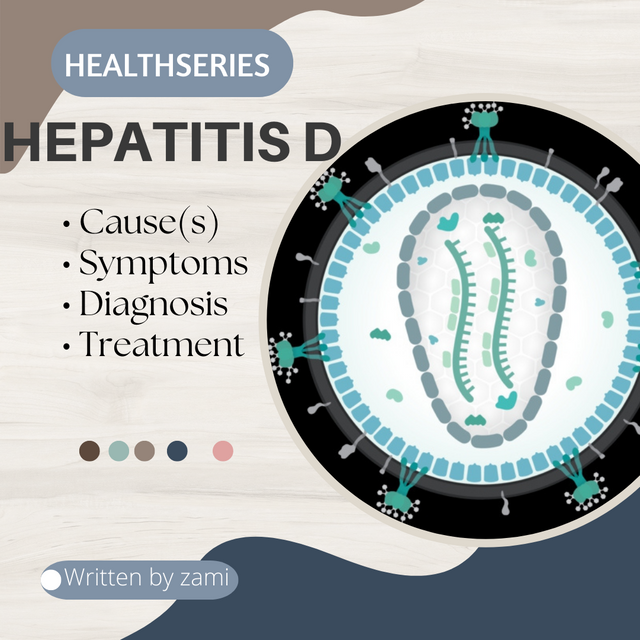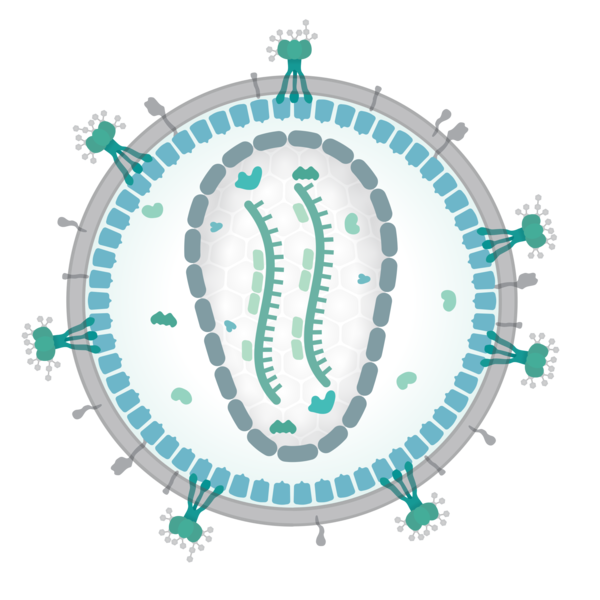Health series; Hepatitis D virus (HDV)

Image made on canva
Greetings to everyone, hope you all are doing well its my pleasure to welcome you all to another episode of health series. I've been inactive for sometimes now due to hospitalization of my mum, but I'm glad to be back.
For today, I'll be resuming from where I left off from the previous episode by looking in detail the hepatitis D virus (HDV), Its symptoms, causes, treatment and more. Have a good read.
what is hepatitis D

Image source
Hepatitis D is a viral infection of the liver which causes inflammation and subsequent damage of the liver. HDV is often referred to as the delta hepatitis and is intrinsically related to the hepatitis B virus (HBV ).
Hepatitis D can cause serious symptoms that can lead to the damage of the liver and subsequent dead. Interestingly, HDV only affects people with history of hepatitis B and cannot cause infection in normal individual, hence its relationship with HBV.
HDV can be an acute or chronic infection depending on the duration of the disease. If the disease lasts up to 3months, its called an acute HDV, but if it stays longer than 6 months, its termed to be a chronic HDV. Chronic HDV increases the chance of liver complications like cirrhosis and scarring of the liver.
According to world health organisation (WHO), there are about 100,000 reported cases of the virus in the united states, statistics also shows that 5% of people with chronic hepatitis B also have hepatitis D.
Causes
Hepatitis D is caused by the HDV, this virus can only be transmitted through body fluids like semen and blood. However, only people with hepatitis B can contract hepatitis D, this is because hepatitis D virus (HDV) needs hepatitis B virus (HBV) to replicate in the body.
Common means through which HDV is transmitted include;
- unprotected sex
- sharing of sharp objects like razor, needles etc.
- mother to child transmission during child birth.
It is also worthy of mention that this virus cannot be transmitted through foods or water, it cannot also be transmitted through droplets of cough or sneeze, hence its not contagious.
The people who are most likely of contracting the virus are those with HBV or people who are yet to receive vaccine for HBV.
Symptoms
The symptoms of HDV varies depending in the duration of the infection (acute or chronic), however, the likely symptoms include;
- Loss of appetite
- dark urine
- loose stool
- vomiting
- nausea
- jaundice
- encephalopathy
- joint and abdominal pains
- Ascite and splenomegaly
- Anorexia.
Diagnosis
Diagnosis of hepatitis D is similar to other types of hepatitis. The doctor conducts a physical examination based on the patient's symptoms abdominal pains.
Blood test is also carried out to check for the presence of the virus in the blood stream.
Treatment
There is no absolute cure for HDV, however, treatment regimen includes medications that can help manage the disease and also boost the patient's immune towards fighting the virus.
Its also pertinent to treat people with HDV with antiviral medications lime acyclovir to help them fight off the virus.
CONCLUSION
HDV is a serious infection of the liver and ought not to be taken for granted. It can cause a permanent liver damage and subsequent dead.
Any time you observe any of the aforementioned symptoms, visit the nearest health care facility for examination. Also endeavour to stay away from the risk factors.
Thanks for reading through. If you have any question, drop them on the comment box below, I'll attend to all of it. I'll be back with another episode, steem on.
Congratulations, your post has been supported by @steem4nigeria. This is the official community account of Nigerians on Steemit. You can reach us here on our community account.
Discord Facebook Twitter